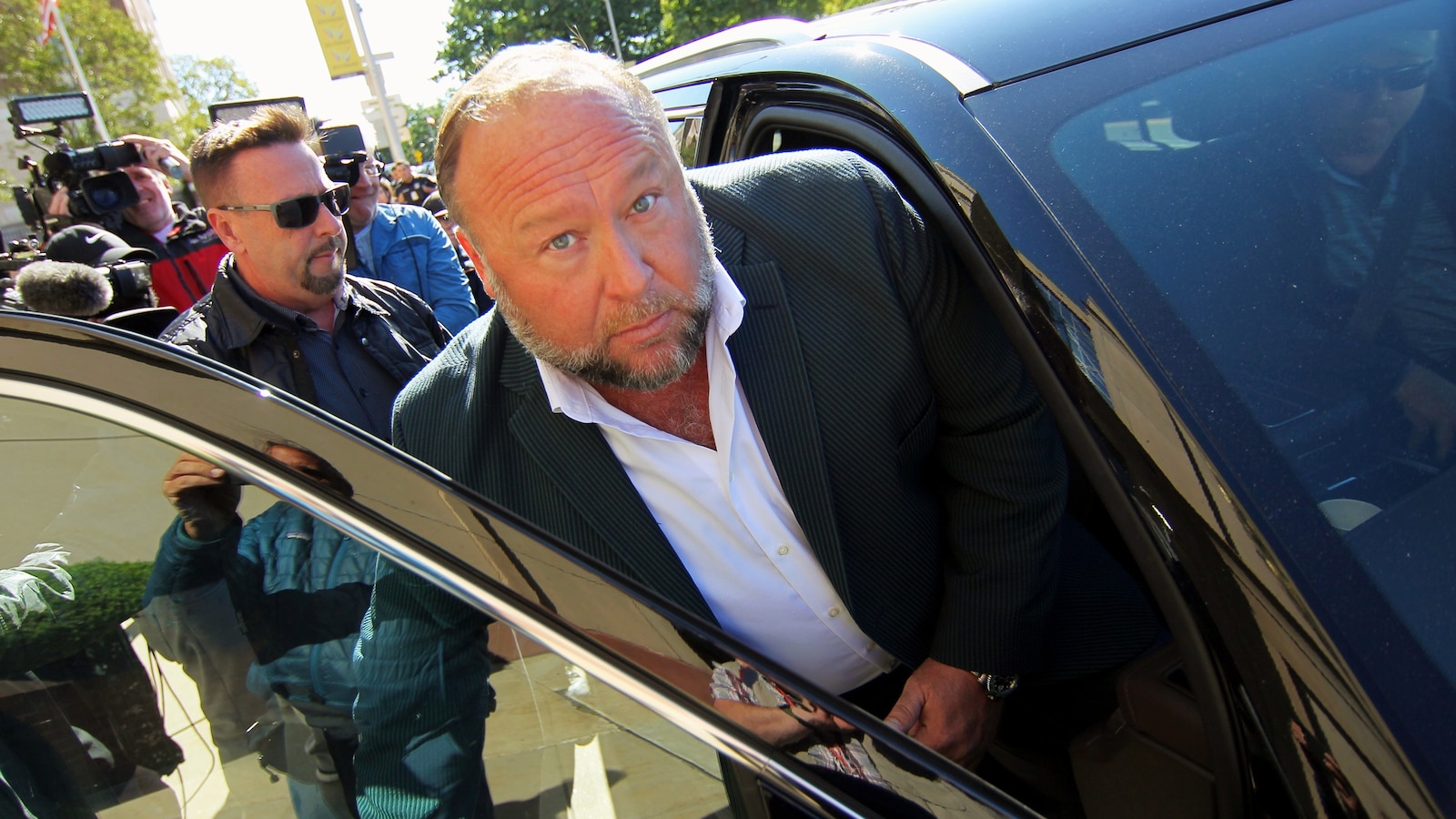Supreme Court Rejects Alex Jones’ Appeal: $1.4 Billion Sandy Hook Judgment Stands Amid Defamation Fallout
In a swift blow to conspiracy theorist Alex Jones, the U.S. Supreme Court has shut down his last-ditch bid to escape a staggering $1.4 billion defamation penalty tied to his hoax claims about the Sandy Hook massacre. This ruling cements a decade of legal reckoning for the Infowars host, whose lies fueled harassment against grieving families.
The decision, handed down on October 14, 2025, without any explanation from the justices, leaves intact the massive judgment from a Connecticut court. Jones had petitioned the high court to review a lower appellate ruling that upheld most of the 2022 verdict, arguing it violated his First Amendment rights as a media figure with millions of listeners. His lawyers called the penalty a “financial death penalty by fiat,” warning it could chill free speech nationwide. But the court, in a routine denial, didn’t even require responses from the victims’ families before passing.
For context, the saga traces back to December 14, 2012, when a gunman killed 20 first-graders and six educators at Sandy Hook Elementary School in Newtown, Connecticut—one of the deadliest school shootings in U.S. history. Jones, the bombastic founder of Infowars, spent years peddling baseless theories that the tragedy was staged by “crisis actors” and government operatives to push gun control agendas. These claims didn’t just rack up views and supplement sales for his site; they unleashed a torrent of death threats, stalking, and doxxing on the victims’ relatives, who testified to living in fear and isolation.
The lawsuits piled up in 2018, with families and an FBI agent who responded to the scene suing Jones for defamation and intentional infliction of emotional distress. By default—after Jones dodged discovery and subpoenas—courts found him liable. A Connecticut jury then tacked on $965 million in compensatory damages, plus $473 million in interest and punitive awards, totaling over $1.4 billion. A separate Texas case added nearly $50 million more, though Jones is appealing that too. To date, not a dime has reached the families, as Jones filed for personal bankruptcy in 2022, shielding assets like his Texas ranch while a receiver liquidates Infowars holdings.
Reactions poured in fast. Chris Mattei, lead attorney for the Sandy Hook plaintiffs, hailed the outcome as a rejection of Jones’ “desperate attempt to avoid accountability.” “We look forward to enforcing the jury’s historic verdict and making Jones and Infowars pay for what they have done,” Mattei said in a statement shared across news wires. Legal experts echoed this, with First Amendment scholars noting the ruling underscores that speech inciting real-world harm isn’t protected— a precedent that could ripple through future media liability cases. On the flip side, Jones’ supporters decried it as censorship, flooding social media with claims of a “deep state” hit job, though mainstream voices largely framed it as justice delayed but not denied.
This isn’t Jones’ only Supreme Court tussle. Just last week, he filed an emergency plea to halt the sale of Infowars, arguing his 30 million daily listeners depend on the platform. That bid also fizzled, paving the way for auctions of his supplements empire and personal effects. Two more defamation suits from other Sandy Hook parents loom, potentially swelling his tab further.
For everyday Americans, this case cuts deep into ongoing debates over misinformation’s toll—especially in an election year rife with conspiracy theories. It spotlights how online echo chambers can turn words into weapons, eroding trust in institutions from schools to courts. Economically, it pressures media entrepreneurs to weigh “edgy” content against legal risks, possibly curbing the spread of harmful narratives that prey on vulnerable audiences. On the lifestyle front, it offers a measure of closure for gun violence survivors, reminding families nationwide that accountability can prevail against powerful platforms. Politically, it reinforces limits on speech that endangers public safety, influencing how lawmakers tackle tech regulation and content moderation without trampling rights.
As for user intent, readers seeking updates on this high-profile saga get a full timeline, key players, and next steps here—empowering informed discussions without the spin. From a management angle, the courts’ handling shows a deliberate push for transparency in asset seizures, ensuring proceeds go directly to healing rather than endless appeals.
In the end, the Supreme Court’s rejection seals a landmark win for Sandy Hook families, but the road to full recovery remains fraught with bankruptcy battles and asset hunts. Looking ahead, expect intensified scrutiny on Jones’ operations and broader calls for media reforms to prevent similar traumas, as the nation grapples with the enduring scars of 2012.
By Sam Michael
Follow and subscribe to us to increase push notifications.
Alex Jones Sandy Hook, Supreme Court Alex Jones appeal, $1.4 billion defamation judgment, Sandy Hook hoax claims, Infowars bankruptcy, First Amendment media liability, conspiracy theories accountability, school shooting defamation cases, Alex Jones legal battles, Sandy Hook families verdict
